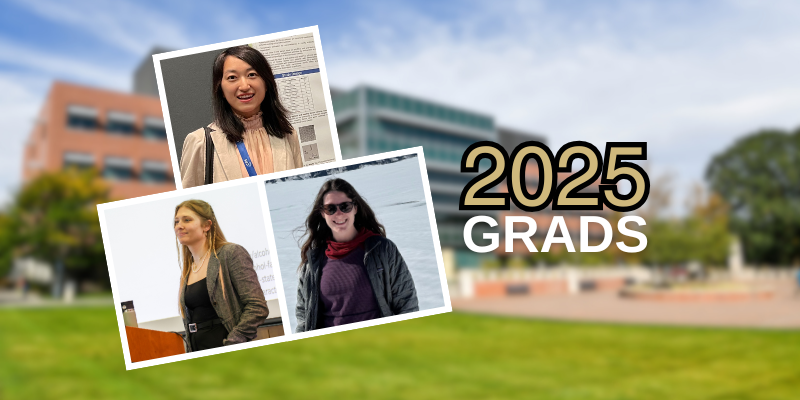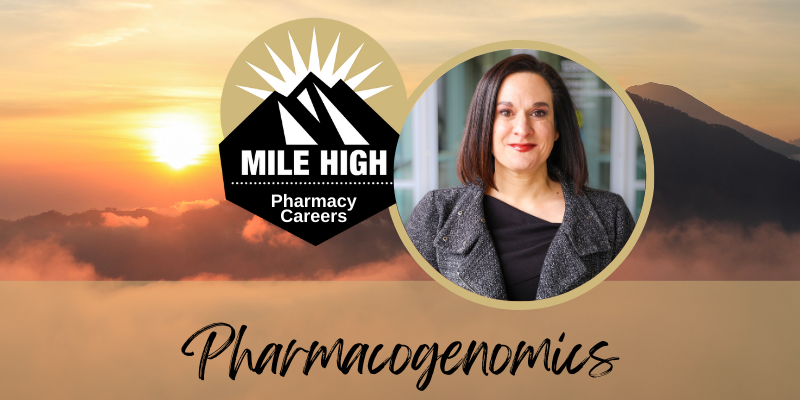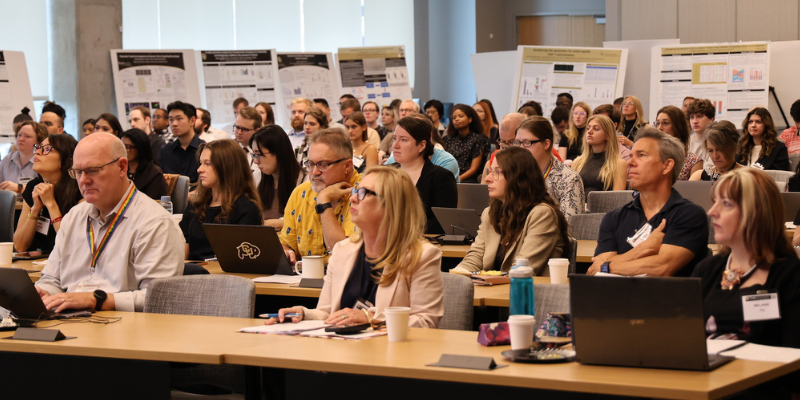Research is an integral part of pharmacy, and CU Pharmacy is not only a Top 15 school producing clinical pharmacists, but also a top funded school by the National Institutes of Health for its research. The school boasts three robust PhD programs; pharmaceutical sciences, pharmaceutical outcomes research and molecular toxicology. This year’s graduates of each program have dedicated years to their academic journey and spent countless hours in the lab, pouring over data, and diving into some of the world’s biggest challenges all in the name of science.
Challenging and Rewarding

Pharmaceutical sciences graduate Yue Li didn’t originally plan on getting her PhD at CU Pharmacy. She was accepted into the School's inaugural Master of Science in Pharmaceutical Sciences (MSPS) program, and her positive experience as an MSPS student played a role in her decision to apply for the PhD program. It was a good decision. She is the first MSPS graduate from CU Pharmacy to successfully compete with the global pool of applicants for the PhD program, and to-date, she is the first MSPS graduate to complete the PhD in Pharmaceutical Sciences at the School.
“I was already familiar with the campus and the lab environment, eliminating the need for major adjustments,” she said. Li’s research interests aligned with Dmitri Simberg, PhD, Professor and Co-Director of the Colorado Center for Nanomedicine and Nanosafety. Both Li and Dr. Simberg study immune response to nanomedicine, or the use of tiny particles to help diagnose, treat, and prevent diseases. These tiny particles can travel through the body to deliver medicine directly where it's needed, making treatments more precise, more effective, and with fewer side effects.
“Dr. Simberg’s lab is incredibly supportive and productive, offering me ample opportunities to learn and contribute meaningfully, which has significantly enhanced my academic output,” Li said. Over her time at CU Pharmacy, she authored 15 papers, ten of which she was first author. She explained that Simberg’s lab aligns perfectly with her research interests, providing her with a unique opportunity to explore the interaction between nanoparticles and the immune system.
“One of the most valuable lessons I’ve learned, and what has impressed me most, is the emphasis on critical thinking, which is quite different from my education in China,” she explained. “In China, we were often taught to listen and absorb information, rather than question and critically analyze it.”
Li’s time at CU Pharmacy was also full of life changes. During her PhD program, she got married and had her first child.
“When I found out about the pregnancy, I was both surprised and anxious,” she said. “I had completed most of my experiments by then, though I had to delay my expected graduation date. Every time I see my baby’s smile, I feel incredibly fulfilled and grateful to be his mother.”
She cites both her mom and her husband as her support system, which helped her to manage the program and become a new parent – and she remains incredibly logical about maintaining a work-life balance.
“Balancing school and life haven’t been difficult for me,” she said. “It's all about managing my time effectively... The PhD journey is challenging, but not without its rewards.”
Data-Driven Science

Monica Bianchini agrees with her sentiment. The PhD graduate in Pharmaceutical Outcomes Research encourages future students to “Do it!”
“But really, I'd encourage people to think hard about what they want to take out of a PhD, such as innovative methods, new coding or modelling skills, subject area expertise, and then communicate that with your mentors early and take advantage of all the available resources to get the most out of your experience,” she said.
Pharmaceutical Outcomes Research is a different type of animal than many scientific degrees. It isn’t in a lab, and it deals with a lot of data – it's the study of what happens after people take medicine. It looks at how well the medicine works, how much it costs, how it affects people’s health and quality of life, and whether it’s worth the money. The goal is to make sure patients get the best possible care for the best value.
Bianchini is already a Doctor of Pharmacy and has a Master of Public Health. During her PharmD program, she became interested in infectious diseases, and her research experiences during pharmacy residency eventually led her to pursue a degree in outcomes research. She continued to work as a pharmacist and epidemiology consultant throughout her time at CU Pharmacy.
“My research here focused on public health and infectious diseases. My dissertation was focused on improving syphilis care in the state,” she said.
Bianchini explained that syphilis is easily treated with penicillin, but left untreated it can lead to continued spread of the disease and complications decades after infection. Bianchini said that syphilis rates have been rising across the U.S., and Colorado for the past decade. Her research examined how providers are treating patients for syphilis, patient outcomes after treatment, and what it might look like to expand annual testing from a policy level.
“Outcomes research lets us use the existing clinical data from care delivered to evaluate and improve patient outcomes,” she said. “I love public health, part of my dissertation used public health survey data, but I wanted to pursue a degree in outcomes research because I think that this field benefits from people who have a foot both in the research and clinical world.”
After graduation, Bianchini is seeking to combine her interests of public health, policy, and clinical work.
“Being involved in health research that impacts health policy, that's the dream job,” she said.
To relax, Bianchini likes to get outside – hike, travel, and explore. In February 2025, she took a post-defense vacation to Japan, a well-deserved trip to celebrate her accomplishments.
Mentorship and Toxicology

Courtney McGinnis will also be celebrating. The toxicology graduate defended her dissertation in early April and is excited to see what the next phase of life may bring. Toxicology is the study of poisons and how substances affect people, animals, and the environment. It looks at things like how much of a substance is dangerous, what it does to the body, and how to treat or prevent harm. McGinnis spent most of her time in the lab of assistant professor Kristofer Fritz, PhD, who studies biochemical mechanisms of cellular dysfunction (the chemical processes inside cells that go wrong and cause the cells to stop working properly).
McGinnis started her education as a pre-med major, but the summer of her junior year of her undergraduate degree she got an internship at a pharmaceutical company. She had always enjoyed chemistry, and she decided to change her direction and apply to CU Pharmacy for a PhD in Toxicology.
“I started working with Kris [Fritz] because of how he studies,” she explained. “He does something close to analytical biochemistry, where we look at mouse or human tissue and expose it to alcohol, or tissue of patients with chronic liver disease from alcohol use. It's very chemistry based.”
McGinnis and Fritz looked at how alcohol disrupts proteins, how proteins then function within the body, and how it impacts liver function. During her education, McGinnis was surrounded by support from her friends, boyfriend, and mom – and she got very involved with CU Anshutz Women in STEM mentor program, where she forged relationships with mentors, became a mentee, and encouraged women scientists to find their voice.
“I love mentorship,” she said. “The advice I typically give is don’t take it too seriously and learn what your boundaries are and set them. ‘No’ is always an answer.”
Post-graduation, McGinnis is looking to work in regulatory affairs or toxicology in consumer products and is excited to pick up old hobbies.
“I’m from the Midwest, so I like to do anything near water. I love to read. And I really enjoy cooking,” she said.
Success in science doesn’t follow a single path. It can include publishing papers, building families, changing career directions, balancing other careers with education, or mentoring the next generation. And while their PhD chapters are coming to a close, their impact is just beginning.



